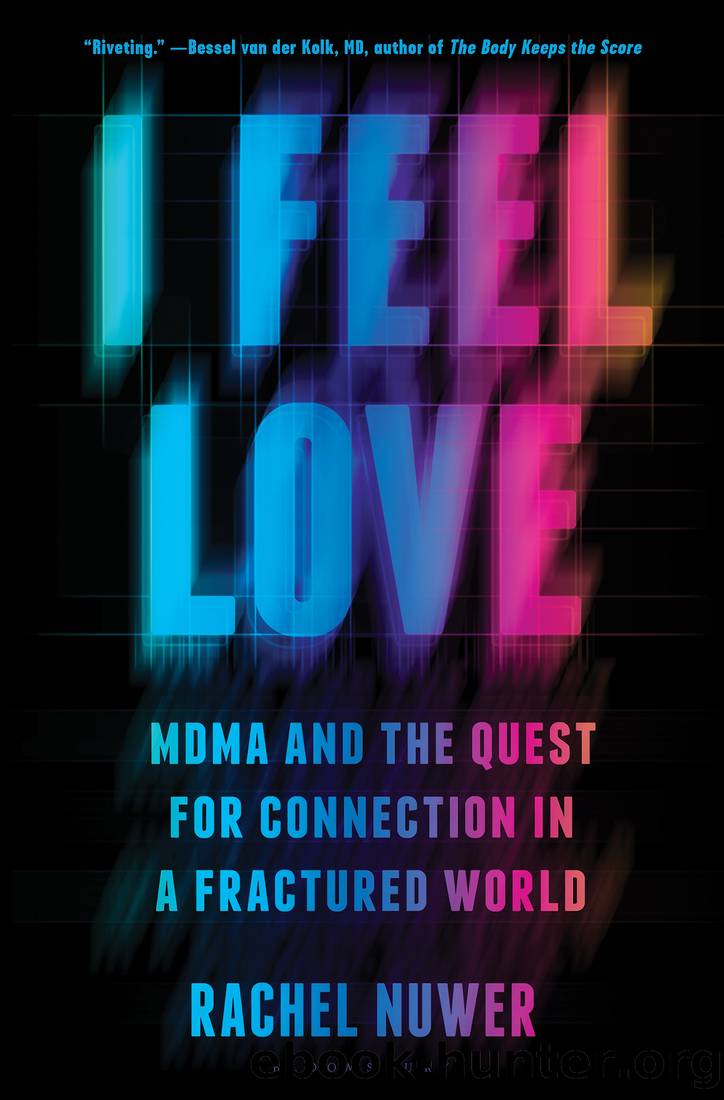I Feel Love by Rachel Nuwer

Author:Rachel Nuwer
Language: eng
Format: epub
Publisher: Bloomsbury Publishing
The idea of using psychedelics to treat addiction is not new. As Michael Pollan reported in This Is Your Mind on Plants, for decades Native Americans have held peyote ceremonies2 to address the drivers of alcoholism in their communities, including multigenerational trauma caused by genocide and colonialism. Western medicine in the 1950s likewise discovered3 that LSD seemed to be effective for this purpose. In 1951 Alfred M. Hubbard, known by some as the âJohnny Appleseed of LSDâ for turning thousands of people on to the drug, and Humphry Osmond, the psychiatrist who coined the word psychedelic, set up an LSD and mescaline center at a hospital in Saskatchewan to treat patients with alcohol use disorder, among other things; similar psychedelic treatment centers soon spread to other locations in the province and in British Columbia. Bill Wilson,4 the founder of Alcoholics Anonymous, also endorsed LSDâs effectiveness as a tool to treat alcoholism after Osmond gave him tabs to try.5 (Wilsonâs board of trustees forbade him from publicly acknowledging this, however.)
More recently, in 2014, scientists at Johns Hopkins University conducted a study using psilocybin to help longtime smokers6 break their habit. After six months, 80 percent of the fifteen participants were still abstaining from cigarettes. In comparison, varenicline, a pharmaceutical drug considered to be the most effective treatment for helping people quit smoking, typically has a 35 percent success rate at the six-month mark. In a 2017 paper, the Johns Hopkins researchers followed up on their psilocybin subjects7 and found that 67 percent were still abstaining from smoking at the twelve-month mark.
Sessaâs interest in MDMA and other psychedelic drugs8 was sparked in 1990, when he was a long-haired, soulful-eyed, eighteen-year-old DJ immersed in Londonâs rave scene. When he started medical school, he brought his interest in psychedelic culture to his studies and read all the decades-old literature about the medical use of these substances. He asked his psychiatric tutors about LSD-assisted therapy in the 1950s and 1960s and its former promise of becoming the next big tool for healing. Inevitably, though, the senior psychiatrists would look at Sessa like he was crazy. âThat never happened,â he remembers more than one of them telling him. âLSD is a dangerous, addictive drug. If a patient takes LSD, the correct treatment is to tie them to a table and sedate them.â
In 2004 Sessa wrote what is likely the first paper9 in the British scientific literature since the 1960s on psychedelicsâ use for psychiatry. âThat got published, and I quickly found myself a part of what was then a very small international group interested in psychedelics,â Sessa said. He met Rick Doblin and the Mithoefers, and in 2006, when David Nutt at Imperial College London injected him with psilocybin, he became the first person to be legally administered a psychedelic in the United Kingdom in forty years. Of all the psychedelic drugs Sessa had read up on and tried himself, though, MDMA struck him as most suitable for treating trauma-based conditions. âIf you were going to invent a drug for psychotherapy, it would be MDMA,â Sessa said.
Download
This site does not store any files on its server. We only index and link to content provided by other sites. Please contact the content providers to delete copyright contents if any and email us, we'll remove relevant links or contents immediately.
The Art of Thinking Clearly by Rolf Dobelli(10487)
The 5 Love Languages: The Secret to Love That Lasts by Gary Chapman(9809)
Mindhunter: Inside the FBI's Elite Serial Crime Unit by John E. Douglas & Mark Olshaker(9339)
Becoming Supernatural by Dr. Joe Dispenza(8214)
Nudge - Improving Decisions about Health, Wealth, and Happiness by Thaler Sunstein(7706)
The Road Less Traveled by M. Scott Peck(7601)
Mastermind: How to Think Like Sherlock Holmes by Maria Konnikova(7343)
Enlightenment Now: The Case for Reason, Science, Humanism, and Progress by Steven Pinker(7311)
Win Bigly by Scott Adams(7195)
The Way of Zen by Alan W. Watts(6614)
Factfulness: Ten Reasons We're Wrong About the World – and Why Things Are Better Than You Think by Hans Rosling(4742)
The State of Affairs by Esther Perel(4719)
Gerald's Game by Stephen King(4654)
Man's Search for Meaning by Viktor Frankl(4605)
The Confidence Code by Katty Kay(4260)
Thinking in Bets by Annie Duke(4226)
The Healing Self by Deepak Chopra(3578)
Hidden Persuasion: 33 psychological influence techniques in advertising by Marc Andrews & Matthijs van Leeuwen & Rick van Baaren(3565)
The Worm at the Core by Sheldon Solomon(3487)
